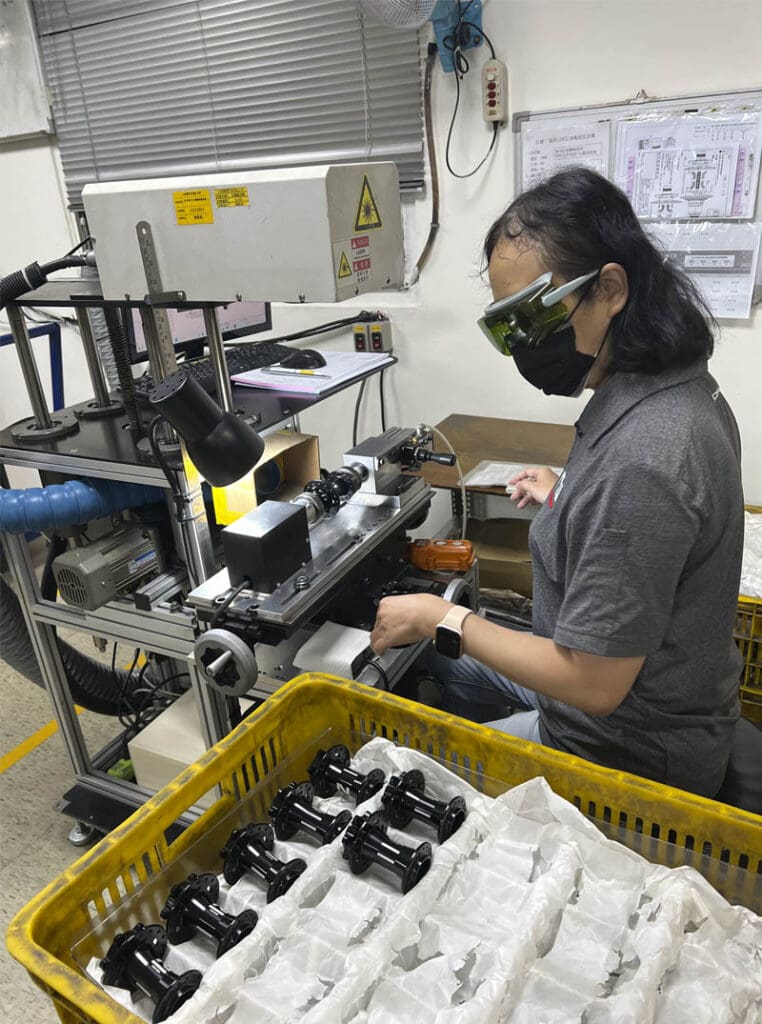Green Focused Taipei Cycle to Push for Global Sustainability MOU
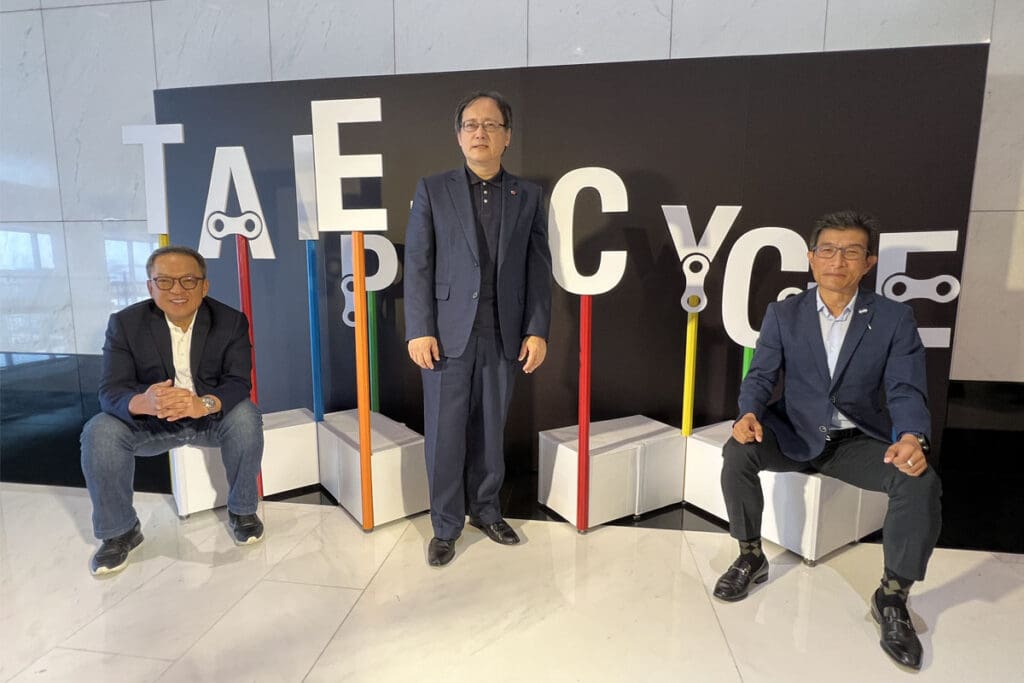
Taichung, Taiwan
Taiwan bicycle industry leaders have signalled their intention to use next year’s Taipei Cycle to achieve a global memorandum of understanding (MOU) for greater sustainability in the industry.
US and European industry representatives focused on sustainable practices in their own markets would be invited to attended Taipei Cycle 2024 to take a global view of the issue and hopefully sign a shared MOU, the chairman of Taiwan’s Bicycling Alliance for Sustainability (BAS), Young Lui, told a Taipei Cycle press conference last month.
The BAS head, who is also CEO of Giant Group, said invited organisation would include the US’s PeopleForBikes and Cycling Industries Europe (CIE), which earlier this year launched its Cycling Industry Climate Action Pledge.
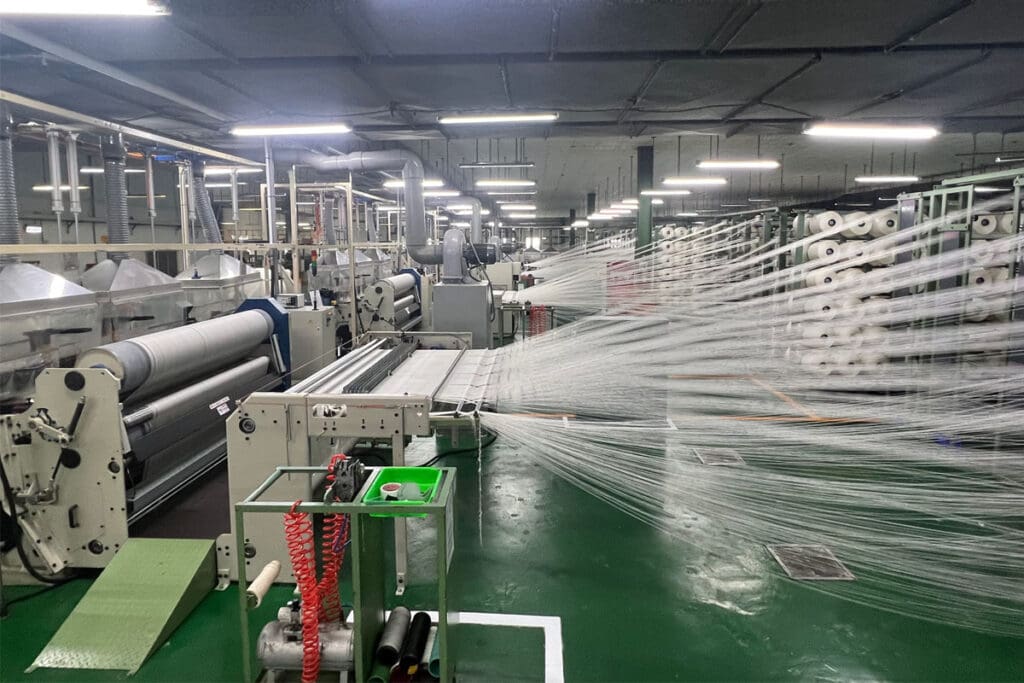
CIE last month reported that more than 80 front-running companies had signed up to the pledge, that encourages companies throughout the bicycle supply chain to measure their cycling footprints and take individual action to significantly reduce their CO2 emissions.
Young Lui told last week’s press conference the measures to be considered and hopefully included in the MOU could include an international cycling passport that records and recognises carbon dioxide savings each time an individual rides.
The press conferences coincided with an international media delegation last week that toured six Taiwanese bike and bicycle component factories in the city of Taichung, with a focus on sustainability measures by the participating companies.
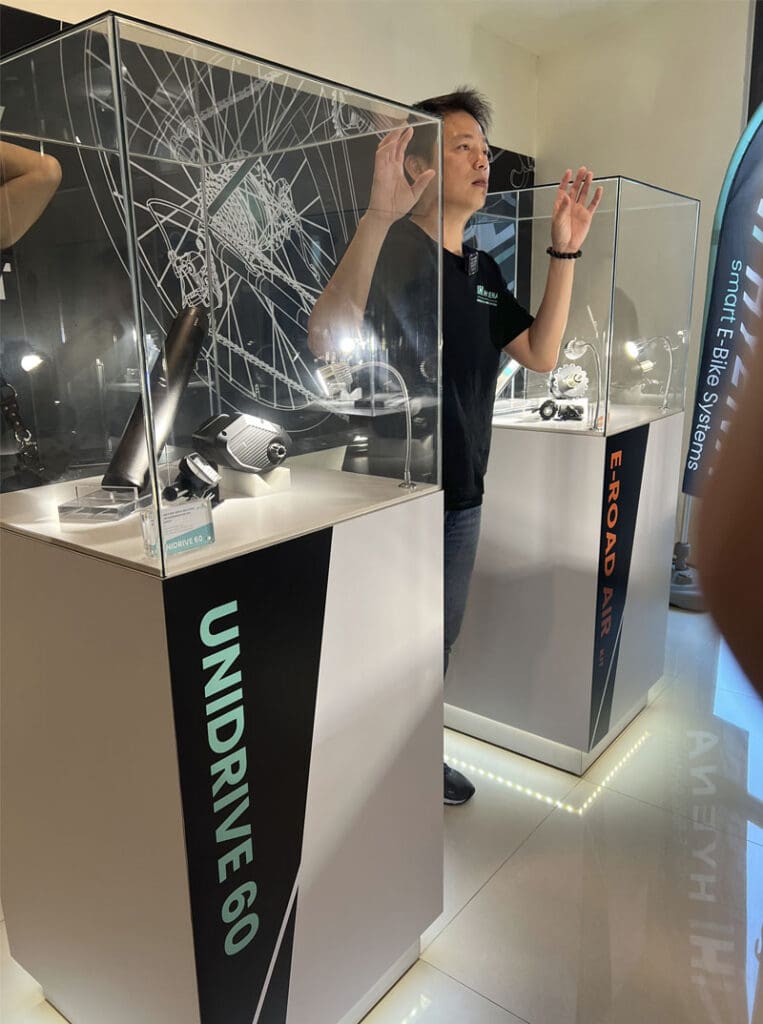
The Latz Report was part of the delegation, which was coordinated by Taiwan External Trade Development Council (TAITRA) and assembled 11 other media representatives from countries including the US, Ireland, the Netherlands, Malaysia, Japan, Sweden and Canada.
The tour’s themes, sustainability and mobility, are in line with Taipei Cycle’s theme for 2024, Envisioning a Better Cycling World.
Sustainability measures highlighted by the two-day tour and the press conference the following day included Formosa Taffeta’s harvesting of used fishing nets and recycling the nylon to produce bicycle tyre carcasses, Glory Wheel’s energy-saving reuse of heated water from its inhouse anodising plant for other operations, Complam Material’s recycling of carbon, and using the resulting carbon pellets to manufacture bike saddles, and Hwasahi International’s production of its 720 Armour eyewear from recycled fishing nets and coffee waste.
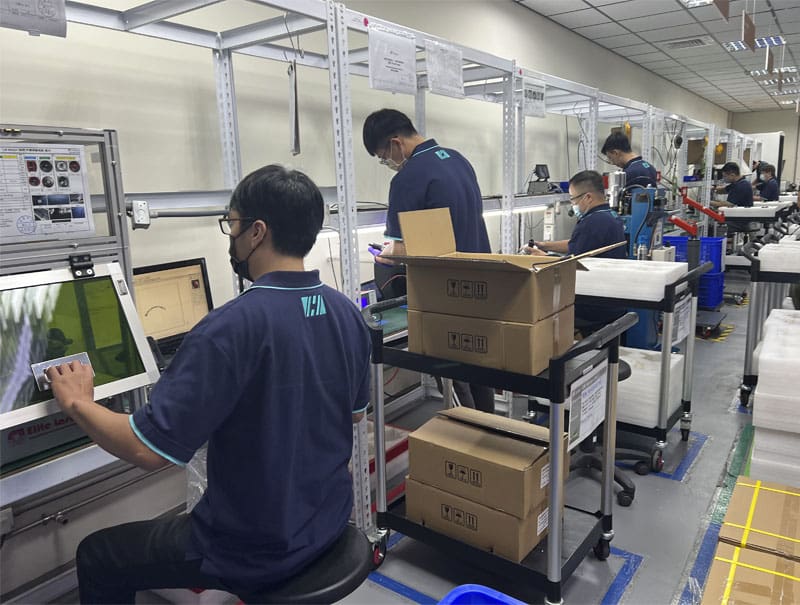
However, equally significant is the general commitment by companies, such as hub and rim manufacturer Joy Industrial, to the Taiwan bike industry’s environmental, social, and corporate governance (ESG) program.
Young told the media conference that members of the Bicycling Alliance for Sustainability (BAS) are required to complete a Carbon Footprint Verification within two years.
“Up to now, approximately 75% of the members have achieved this goal within just nine months,” he said.
“Secondly, our members are committed to reducing carbon emissions by three percent annually, aiming to achieve a 25% reduction in carbon emissions per bicycle by 2030.
“That’s the equivalent of about 40kg of carbon emission reduction per bicycle. Finally, we will promote individual carbon credit passports to encourage more people worldwide to ride bicycles.”
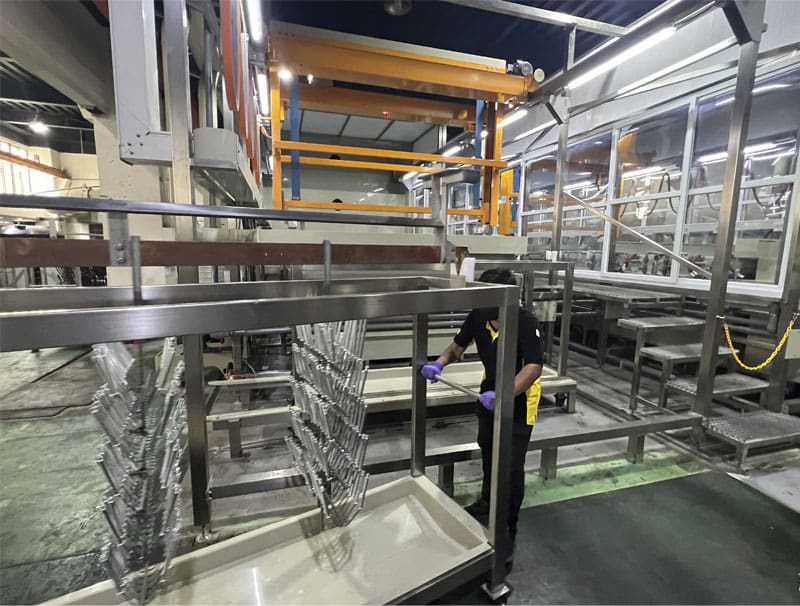
Joy Industrial general manager Jeff Chen said the three percent annual cut was a readily achievable target and many BAS participant would accomplish much higher reductions.
Joy Industrial, which is among the world’s top five suppliers of hubs and a leading player in the BAS, used its tour visit to outline several measures to curb its own emission levels and packaging waste.
That includes a steady but measured increase in automation for enhanced efficiencies, a shift from decals to the more resource, power and labour efficient process of laser etching directly onto products, switching from staples to glue for packaging to assist recycling, and even constructing quirky office furniture from rims that don’t pass quality control tests.
The GM said the company – which produces around 12 million hubs and 4,000 high-end carbon wheelsets annually under the JoyTech, Novatec and recently launched Novatec Premium (NP) brands – was also introducing incentives for staff to cycle to work.
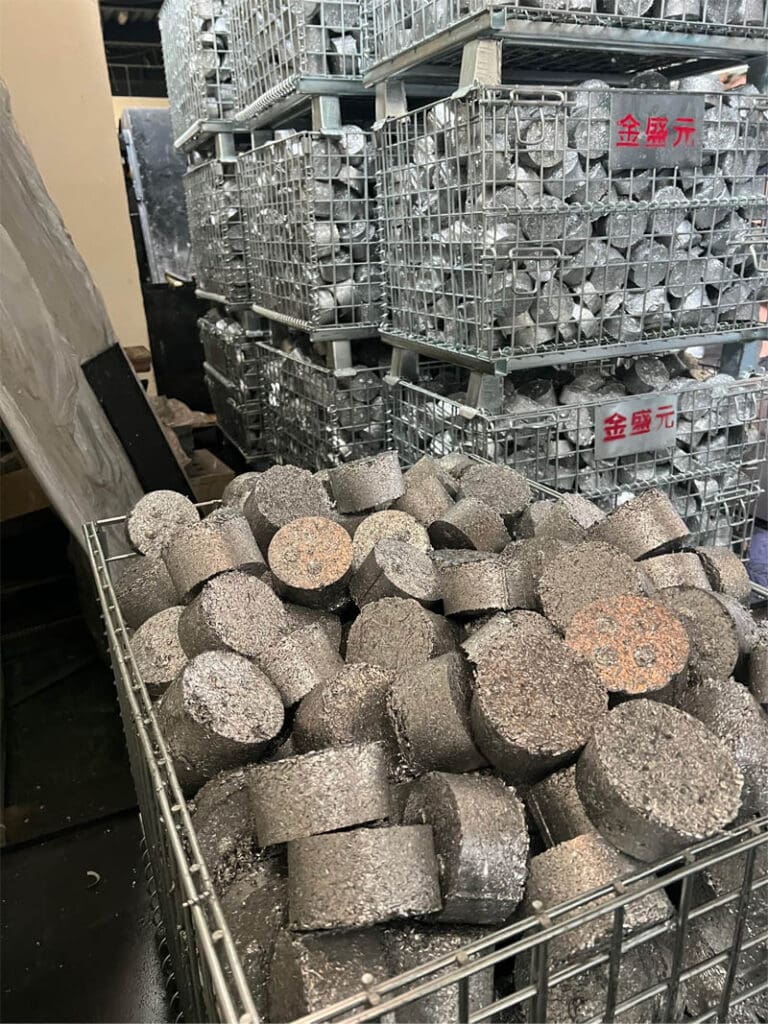
TAITRA CEO and Taipei Cycle organiser Simon Wang said the tour highlighted the Taiwanese bicycle industry’s significant progress in sustainable manufacturing, design innovations, and the research and development of new materials.
He said the delegation also reinforced the island’s position as a key contributor to the future of intelligent, electric mobility, such as e-bike systems designer and manufacturer Hyena. It is supplying some of the world’s biggest brands and has just released its first mid-drive motor, as part of a new complete drivetrain system.
At the same time, figures presented at the media conference showed just how tough 2023 has been for the Taiwan bike industry.
August 2023 figures from the Ministry of Economic Affairs, Bureau of Foreign Trade showed the industry’s overall export value fell 21.29%, compared to the corresponding period last year, to US $3.211 billion (A$5.08 billion).
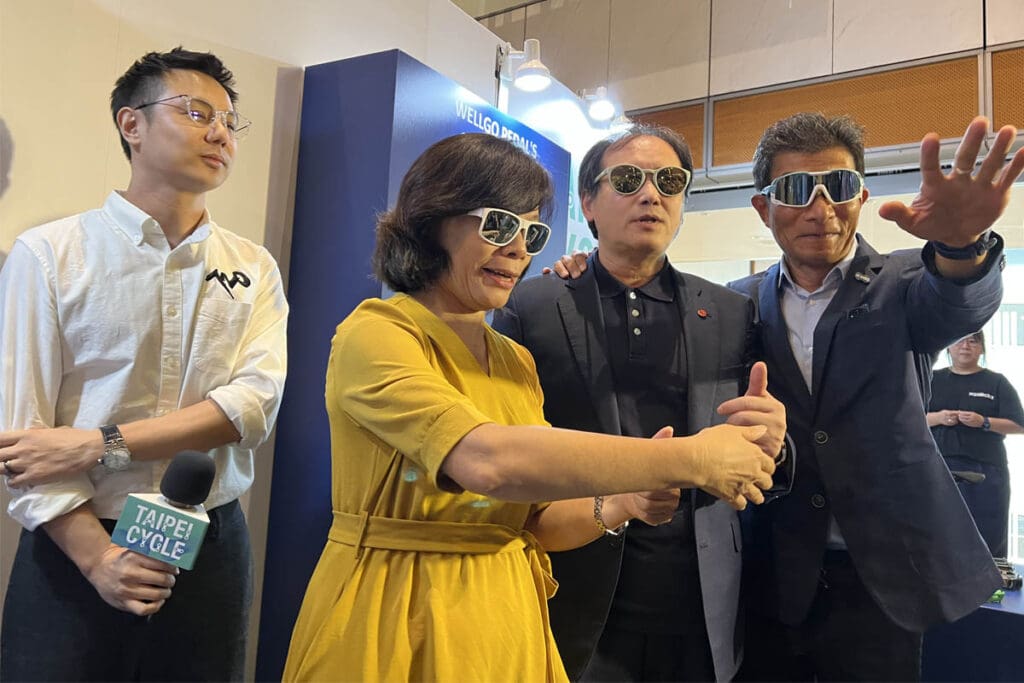
At the heart of the decline was a 23.64% drop in the number of units exported, to 997,000 bikes. That included a 19.76% decrease in the number of e-bikes to 543,000 units.
However, the slip was eased by a 31.19% rise in the average unit price, climbing to US$1,008 (A$1,597). Massive increases in the value of exports to two major markets, China and Germany (244.23% and 99.09% respectively), also brought relief at a time when almost every other market dropped significantly.
Taiwan Bicycle Association chairman Robert Wu told the media conference while 2023 has been a very difficult year for the worldwide bicycle industry, hard periods are also a good time for Taiwan organisations to “prepare exciting future products and technology”.
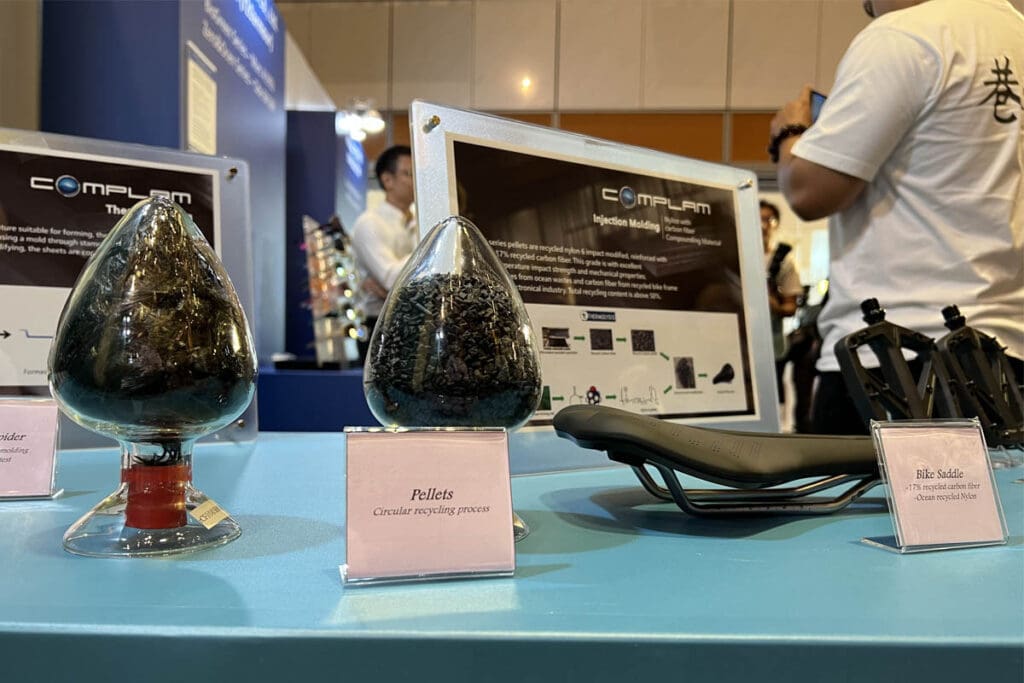
TAITRA has announced TAIPEI CYCLE 2024 has surpassed its pre-pandemic exhibitor numbers, including a “diverse array of exhibitors from across the globe”.
The 2024 event, being held in the nation’s capital from 6th-9th March, has attracted more than 900 exhibitors representing 30 countries, with around 3,400 booths.
“Notably, the fourth floor of TaiNEX Hall 2 will be dedicated solely to the display of e-bikes and e-mobility supply chain products,” it declared.
Further information about Taipei Cycle and next year’s edition is available at taipeicycle.com.tw.
